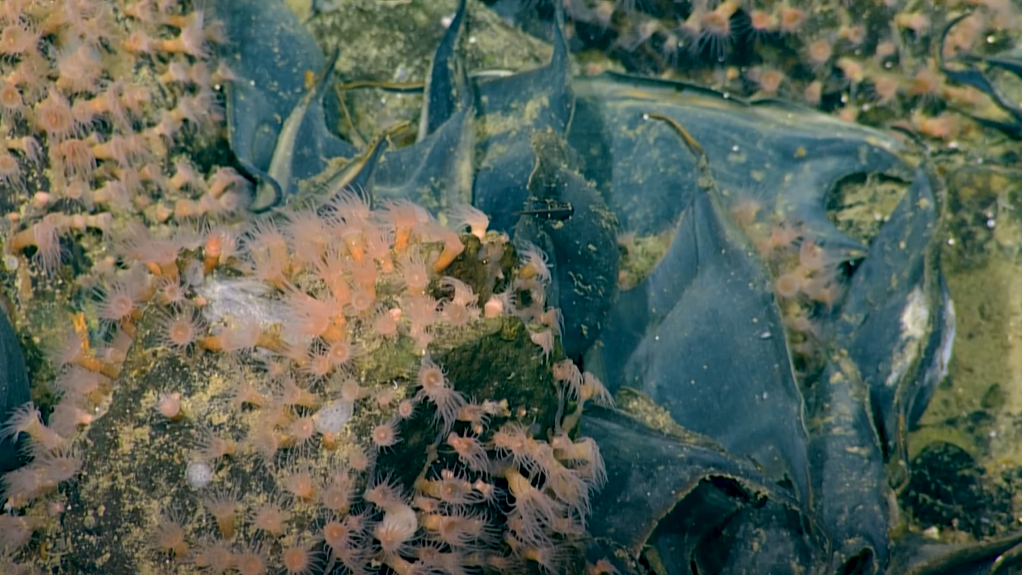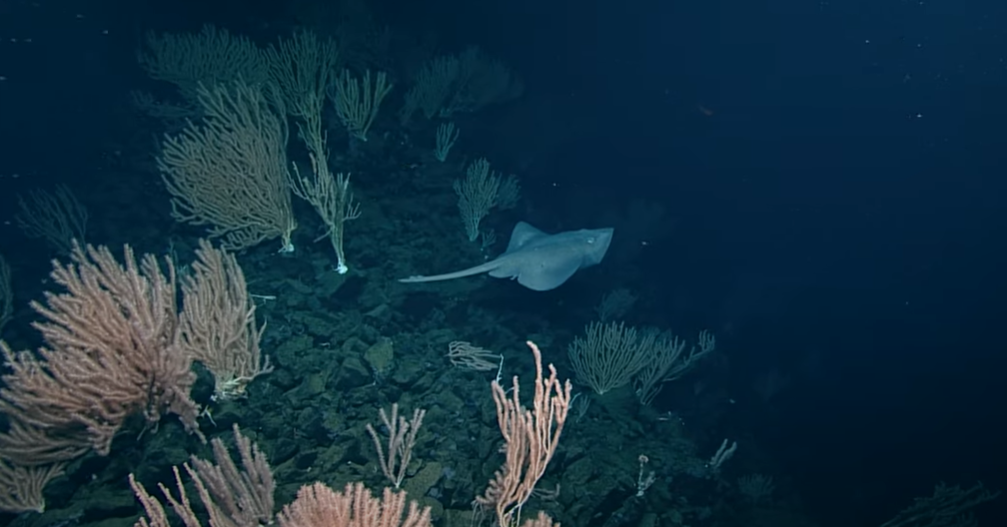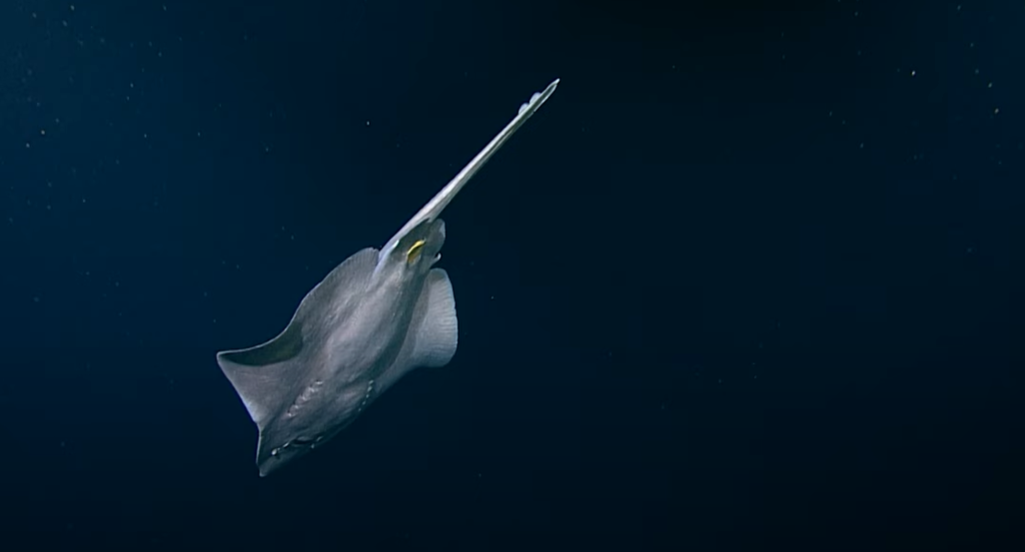
Researchers exploring an ancient, underwater volcano off the Pacific coast of Canada have discovered it is still active — and "covered" in thousands of giant eggs.
Before the expedition, the team thought the volcano was extinct and the waters around it frigid. However, they found the underwater mountain — which towers 3,600 feet (1,100 meters) above the seafloor — spouting warm water and encrusted with deep-sea corals. The hot, mineral-rich fluid keeps the surrounding waters toasty, providing ideal conditions for some marine creatures to survive in the deep sea. The researchers were even more surprised to see a Pacific white skate (Bathyraja spinosissima) weaving in and out of the fronds and laying eggs on the summit, nearly a mile (1.5 kilometers) beneath the surface.
Related: Deep-sea squid mom carries dazzling pearl-like string of eggs
"It's a really special place on top of a really special place," Cherisse Du Preez, a deep-sea marine biologist with Fisheries and Oceans Canada and principal investigator on the expedition, told Live Science in an email. "The only previous finding of a Pacific white skate nursery was in the Galapágos and I think was on the order of a dozen or two eggs."

Du Preez said the recently found skate nursery is many times the size of that. "I'd estimate the summit of the seamount, which was covered in eggs, had — I don’t know — 100,000? A million?" These eggs were large, Du Preez added, measuring about 1.5 feet (0.5 m) across.
The researchers were also the first ever to record footage of a Pacific white skate laying eggs, they said in a video of the expedition.
Pacific white skates are little-known sea creatures related to sharks and rays. They are among the deepest-dwelling species of skate, inhabiting depths between 2,600 and 9,500 feet (800 to 2,900 m) off the west coast of North and Central America, according to the IUCN Red List. Adult females, which can grow up to 6.5 feet (2 m) long, lay rectangular eggs, which are known as "mermaid purses" because they look like little bags, Du Preez said.

In 2018, researchers discovered several of these ravioli-shaped eggs close to hydrothermal vents near the Galapágos Islands, suggesting skate moms harnessed the volcanic warmth to incubate their eggs. The new observations point to the same conclusion, Du Preez said.
"It takes four years for the young to develop," she explained. "The warm water likely speeds up the gestation period of the eggs, resulting in more successful juveniles. The shallow summit of the seamount is almost a coral garden and a safe nursery for juveniles to grow before they descend to the deep — it's a win-win."
The researchers will continue to monitor the egg-covered seamount, which is not currently protected and may be threatened by fishing activities. The discovery shows just how important vent habitats are as nurseries and to the overall health of the ocean, Du Preez said.







